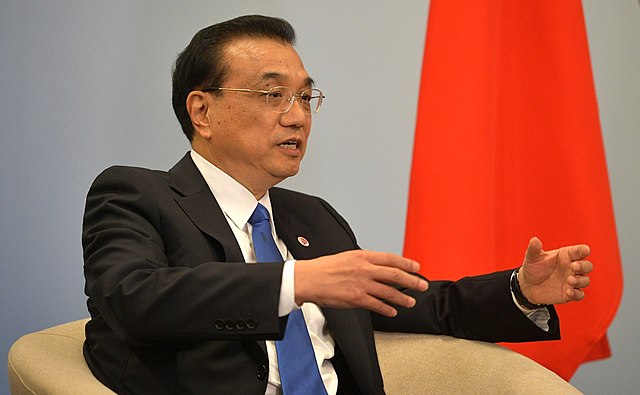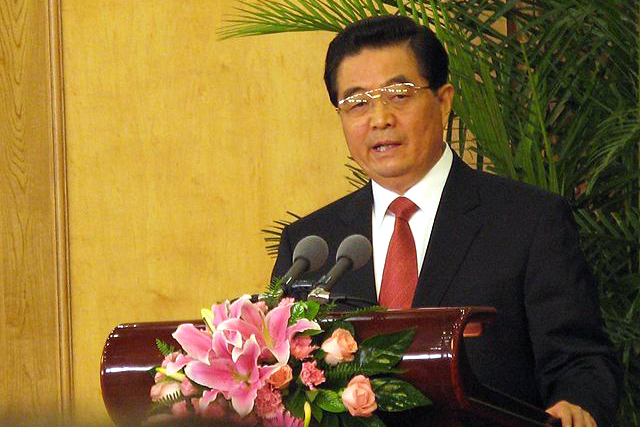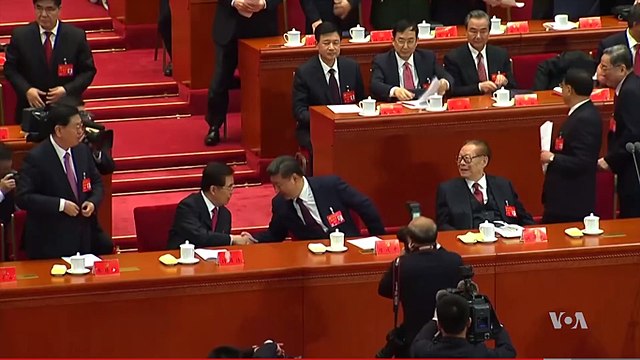先週(3月12日)、中国で出された見出しには不吉なものがあった。「宗教への西洋の影響を減らし、『より中国的』にせよ」という政府の政策を中国のプロテスタント教会代表が支持する演説を行ったのだ。それも、長い間見られなかった手厳しい言葉で。
[toggle]The headlines out of China last week sounded ominous. In strident language not heard in a long time, the head of China’s Protestant church gave a speech supporting the government’s policy of reducing Western influence on religion and making it “more Chinese,” a process dubbed sinicization in English. [/toggle]この動きは、より厳格な政府統制へ向かう一歩だろうか。それとも、信仰を土着化させるか、文脈的に捉える機会、あるいはその両方だろうか。中国にまつわる他の物事と同じように、その答えは複雑だ。
[toggle]Is the move a step toward tighter government control, an opportunity to further indigenize and contextualize the faith, or perhaps both? As with most things in China, the answer is complicated. [/toggle]この中国化キャンペーンは数年間続いている。海外のオブザーバーが警戒を強める中、中国の信者の多くは、政府が政治的な狙(ねら)いを持っている可能性を認めつつ、伝道の機会につながるチャンスとも見ている。
[toggle]This sinicization campaign has been going on for a few years. While outsiders have observed it with growing alarm, many believers in China understand that though the government may have a political agenda, it might also provide opportunities for outreach. [/toggle]
李克強首相(写真:Пресс-службаПрезидентаРоссийскойФедерации)
今月(3月5~15日)、中国の国会である全国人民代表大会(全人代)が北京で開催され、李克強(り・こっきょう)首相は年次計画について報告した。「ナショナル・カトリック・リポーター」によると、首相は「宗教問題に関する(共産)党の基本政策を徹底し、国内宗教の中国化を堅持する」という政府の立場を再表明した。
[toggle]The Chinese National People’s Congress, China’s legislature, convened at the beginning of the month in Beijing, and Premier Li Keqiang delivered his annual work report speech. According to the National Catholic Reporter, he reiterated the government’s commitment to “fully implement the [Communist] Party’s fundamental policy on religious affairs and uphold the sinicization of religion in China.” [/toggle]翌週、中国のキリスト教プロテスタント諸団体を統括する「三自愛国運動」全国委員会の徐暁鴻(しゅう・しゃおほん)委員長は政策の支持を表明し、中国化を進めるための5カ年計画を同団体でも進めると誓った。また、「反中国勢力が国家の権威を貶(おとし)めるためにキリスト教を利用していた」と徐委員長は主張した。
[toggle]The following week, Xu Xiaohong, chairman of the National Committee of the Three-Self Patriotic Movement, which oversees Protestant Christianity in China, spoke on his support for the policy and vowed to press on with its own five-year sinicization plan. Xu claimed that anti-China forces were using Christianity to subvert state power. [/toggle]徐委員長は中国人民政治協商会議の代表らにこう語った。「中国の教会は、『西洋』ではなく『中国』と名づけられていることを認識しなければならない。私たちの社会情勢に影響を与えようとしたり、私たちの国の政権を覆そうとしたりする反中国勢力の行動は、失敗する運命にある」
[toggle] “[We] must recognize that Chinese churches are surnamed ‘China’, not ‘the West,’” he told delegates to the Chinese People’s Political Consultative Conference. “The actions by anti-China forces that attempt to affect our social stability or even subvert the regime of our country are doomed to fail.” [/toggle]北京での全人代が終結した今、この中国化の問題とその背景、すなわち政治的・表現的・歴史的な状況について詳しく見ていきたい。
[toggle]With the conclusion of the government meetings in Beijing, it’s a good time to take a closer look at this issue of sinicization and the surrounding context, or in this case, contexts: political, rhetorical, and historical. [/toggle]政治的背景──あらゆる分野の中国化
[toggle]Political Context: Sinicization Across Sectors [/toggle]現在行われている宗教の中国化キャンペーンの始まりは、2016年4月、全国宗教工作会議で語られた中国の指導者、習近平(しゅう・きんぺい)国家主席のスピーチにさかのぼる。オンライン国際ニュース・マガジン「ディプロマット」によると、「社会主義社会への宗教の適応を積極的に導くための重要な課題の一つは、宗教の中国化を徹底させることだ」と習国家主席は語ったという。
[toggle]The current campaign to sinicize religion originated in a speech by Chinese leader Xi Jinping at the National Religious Work Conference in April 2016. According to The Diplomat, Xi stated that in order to “actively guide the adaptation of religions to socialist society, an important task is supporting China’s religions’ persistence in the direction of sinicization.” [/toggle]これは、中国社会のあらゆる側面への統制を再強化するための共産党運動の一部だ。一党制国家である中国が懸念していることの一つに、西洋の文化や思想の影響力が大きくなることがある。同様の取り締まりは、2012年に習政権が生まれてから、メディアや教育など他の分野でも行われてきた。
[toggle]This task is part of a broader Communist Party campaign to reassert control over all aspects of Chinese society. One area of particular concern for the party-state has been what it sees as the growing influence of Western culture and ideas. Since Xi came to power in 2012, similar crackdowns have been directed against other sectors, such as media and education. [/toggle]宗教活動は、西洋諸国においては市民社会の通常の一部と見なされるが、中国では(特に外国の関与がある場合には)国家への脅威と見なされることが増えている。宗教の中国化推進は、キリスト教プロテスタントに限った話ではない。政府が認可している5つの宗教団体(仏教、道教、イスラム教、カトリック、プロテスタント)は例外なく中国化の計画作成を要求されてきた。
[toggle]While religious activities are seen as a normal part of civil society in the West, they are increasingly viewed in China as a threat to national stability, particularly if there is any foreign involvement. The push to sinicize religion is not confined to Protestant Christianity. All five government-sanctioned religious bodies—Buddhism, Daoism, Islam, Catholicism, and Protestantism—have been required to work out sinicization plans. [/toggle]昨年4月、中国のキリスト教プロテスタント諸団体を統括する中国基督教協会ならびに三自愛国運動全国委員会は、「私たちの国におけるキリスト教の中国化を推進するための5カ年計画概要(2018–2022)」という文書を発表した。
[toggle]Last April, the China Christian Council and Three-Self Patriotic Movement, the associations that oversee Protestant Christianity in China, released a document titled, “Outline of the Five-Year Working Plan for Promoting the Sinicization of Christianity in our Country (2018–2022).” [/toggle]「UCAニュース」の翻訳によれば、この文書の目的は、「新時代の神学的思想を深め、調和の取れた教会の健全な発展を促し、キリスト教の有益性を引き出し、社会主義の中心的価値を実践すること、また社会主義社会への適応を継続的に幅広く深化させること」とされている。またこの計画は、「今後5年間でキリスト教の中国化に関する研究を進めるための重要な基礎」とも述べられている。
[toggle]The stated aim of the document is to “deepen the establishment of theological thought in the new era, promote the harmonious and healthy development of the church, exert a positive role for Christianity and practice core values of socialism. Further, to continuously improve the width and depth of adaptation to the socialist society,” according to a helpful translation from UCA News. The release of this plan, it states, is “an important basis for advancing the work on the sinicization of Christianity in the next five years.” [/toggle]表現的背景──言葉よりも具体的行動
[toggle]Rhetorical Context: Actions Over Words [/toggle]政治学者カルステン・ベラ氏は著書『中国の一党制とプロテスタント教会の政治』の中で、同氏が「公文書」(政府方針への適合性の公的発表)と呼ぶ文書の重要性について書いている。(中国化に関する)発表が出されると、社会のあらゆる組織は、自分たちが「方針に沿っている」ことを公にしなければならず、それは公文書と一致したものでなければならないのだ。これは、中国プロテスタント団体が発表する文書や発言の背景を理解する手がかりとなる。
[toggle]Political scientist Carsten Vala, in The Politics of Protestant Churches and the Party-State in China, writes about the importance of what he calls the public transcript—public displays of conformity to the official agenda. Once an official agenda has been announced (in this case, sinicization), all sectors within society must publicly display that they are “following the line,” and their public transcripts must conform. This is helpful for us to understand the rhetorical context for the documents and remarks coming from Chinese Protestants. [/toggle]一定期間、中国に住んだことのある人には周知のことだが、政府が指針を発表してから数日のうちに、それは社会でも一般的な話題になり、最終的には社会のあらゆる分野で適用される。
[toggle] Those who have lived in China for a time already recognize this. Within days of the party-state laying out its vision, the language from the directive makes its way into public discourse and is eventually adopted by all segments of society. [/toggle]
胡錦濤元国家主席(写真:鐘辰芳)
胡錦濤(こ・きんとう)元国家主席が「調和のとれた社会を築く」という目標を発表したとき、だれもがその達成のための計画を大急ぎで用意した。それは、「調和」という言葉にすぐに人々が飽き飽きするほどだった。
[toggle]When former President Hu Jintao announced the goal of building a harmonious society, everyone rushed to issue plans on how they were going to achieve it; so much so that it didn’t take long for people to tire of hearing the word harmony. [/toggle]
左から胡錦濤、習近平、江沢民各氏(写真:Voice of America)
宗教に関する表現も最近になって始まったものではない。2001年、江沢民(こう・たくみん)元国家主席は、宗教を社会主義社会に適応させる必要性についてこう語っている。
[toggle]Even the rhetoric around religion is not all that new. In 2001, President Jiang Zemin spoke about the need to adapt religion to a socialist society. [/toggle]「宗教専門家には宗教の現場に携わり、最重要事項である国家の利益と公共の福祉に宗教が従い、それに奉仕するよう対処する必要がある。宗教的思想は社会の発展に有益なように解釈されるべきだ」
[toggle] “This requires that religious professionals engage in religious practices in accordance with and in service to the highest interests of the state and the overall interests of the nation,” he said, “that they interpret religious doctrines for social development.” [/toggle]中国の人々も重々承知していることだが、同国では多くの場合、用いられる表現と現実の間にはギャップがある。私たち西洋人は、公式の声明はすぐに実施されるものと仮定して、そのまま額面どおりに受けとる傾向があるが、「中国ウォッチャー」は、何が言われるかより、それから実際に何が起こるかを注視する必要がある。
[toggle] In China, there is often a gap between rhetoric and reality, something its citizens are also keenly aware of. As Westerners, we tend to take official pronouncements at face value, assuming that implementation will immediately follow. Those engaged in “China-watching” need to pay more attention to what actually happens more than what is said. [/toggle]それを踏まえたとしても、今の社会の流れは不安を抱かせるものだ。いくつかの地方当局では、言われたことが忠実に実行されていることも分かっている。教会から十字架を取り除き、習近平と毛沢東の写真を聖所に掲げさせ、十戒が書かれたポスターを社会主義的価値観のリストと置き換えさせたという報告があるとおりだ。中には、地方自治体の役人が手柄を得ようとしたケースもあるかもしれないが、中央政府が政策をより広く実行する前に「テスト」しようとした動きを示している可能性もある。(後編に続く)
[toggle]Still, the trends are worrying, and there’s evidence that some local officials are translating the rhetoric into reality. This accounts for recent reports of directives to remove crosses from churches, hang pictures of Xi Jinping and Mao Zedong in sanctuaries, and replace posters of the Ten Commandments with lists of socialist values. Some instances may be the result of a local official trying to make a name for himself, but these moves could also represent the central government’s efforts to “test” measures before implementing them more widely. [/toggle]
